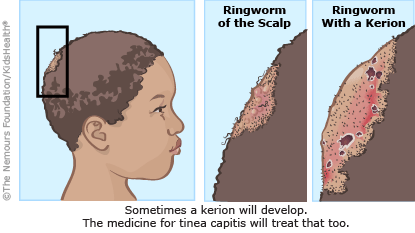Find a Provider
From well-child visits to specialized treatment of complex illnesses and injuries, we offer comprehensive care from an exceptional team of doctors, nurses and allied professionals.
- Parents Home
- Para Padres
- A to Z Dictionary
- Allergy Center
- Asthma
- Cancer
- Diabetes
- Diseases & Conditions
- Doctors & Hospitals
- Emotions & Behavior
- First Aid & Safety
- Flu (Influenza)
- Food Allergies
- General Health
- Growth & Development
- Heart Health & Conditions
- Homework Help Center
- Infections
- Newborn Care
- Nutrition & Fitness
- Play & Learn
- Pregnancy Center
- Preventing Premature Birth
- Q&A
- School & Family Life
- Sports Medicine
- Teens Home
- Para Adolescentes
- Asthma
- Be Your Best Self
- Body & Skin Care
- Cancer
- Diabetes
- Diseases & Conditions
- Drugs & Alcohol
- Flu (Influenza)
- Homework Help
- Infections
- Managing Your Weight
- Medical Care 101
- Mental Health
- Nutrition & Fitness
- Q&A
- Safety & First Aid
- School, Jobs, & Friends
- Sexual Health
- Sports Medicine
- Stress & Coping
Ringworm
What Is Ringworm?
It sounds like the name of a creep-crawly bug. But ringworm isn't an animal — it's a contagious infection on the skin, scalp, or nails that's caused by a type of germ called a fungus.
It's called ringworm because of how the rash looks — it's shaped like a ring that is red and swollen on the edge and healthy-looking in the center. Ringworm affects people of all ages, but is especially common in kids.
How Do People Get Ringworm?
Ringworm is contagious, which means it can easily spread from person to person. It can spread when they're in close contact or when they share things like combs, brushes, towels, clothing, and sports gear.
The fungus needs a warm, dark, and humid place to grow. So public showers, pools, and locker rooms are common places where kids might pick up ringworm infections. It can also spread from pets and other animals, like dogs, cats, or rodents.
What Are the Signs & Symptoms of Ringworm?
Ringworm can be a little annoying — or really uncomfortable. On the skin, it usually starts out as a small red area the size of a pea. As it grows, it spreads out in a circle or ring, or even several rings. The edges of the rings are raised and red, and the rash may itch, sting, or burn.
On the scalp it begins as a small bump or scaly patch that looks like dandruff. The bump or patch gets bigger, and the hair in the infected area can break off. This can leave scaly patches of baldness, but the hair will grow back.

What Will the Doctor Do?
A doctor can usually figure out if you have ringworm by looking at the rash on your skin or scalp. Your doctor may swab or scrape off a skin sample or clip off a piece of hair or nail to test for fungus. But don't worry, this won't hurt!
Treatment is usually simple. For mild cases on the skin, your doctor may have you apply a powder, cream, or spray that contains medicine that kills the fungus. This should make the rash go away in a week or two. Sometimes you'll need to use the medicine for up to a month or more to get rid of the ringworm completely. You'll also need to keep your skin clean and dry.
If the infection doesn't clear up, your doctor might prescribe a stronger medicine. This one will be the kind you swallow.
For ringworm of the scalp or fungus in the nails, you'll need to take medicine by mouth. You may also need to use a special shampoo to stop the fungus from spreading to other people.
What Can Help Prevent Ringworm?
You can do your part to avoid ringworm. Be sure to:
- Take a shower or bath every day (especially after playing sports and sweating) and dry off completely.
- Wear clean clothing.
- Change your clothes every day.
- Use clean towels and don't share towels or clothes.
- Wash your hands well with soap and water after playing with pets.

© 1995- The Nemours Foundation. KidsHealth® is a registered trademark of The Nemours Foundation. All rights reserved.
Images sourced by The Nemours Foundation and Getty Images.


